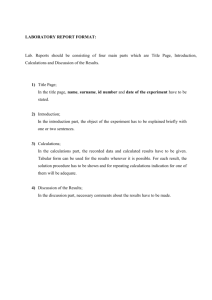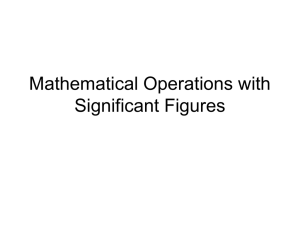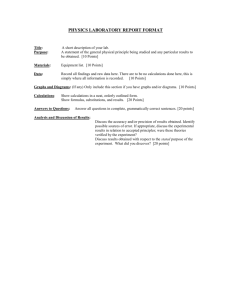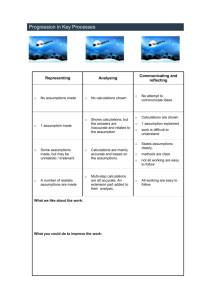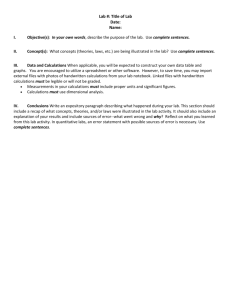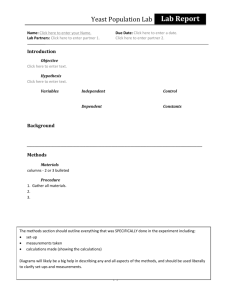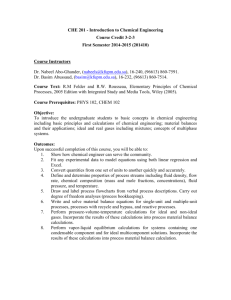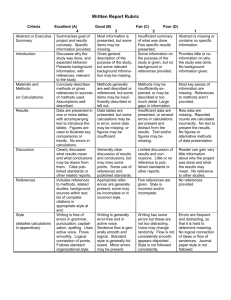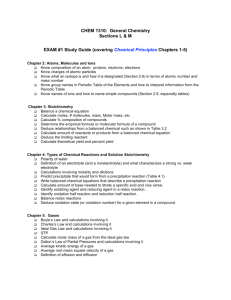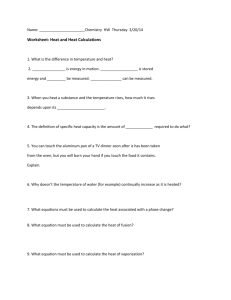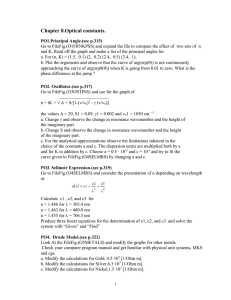Guess the Number
advertisement
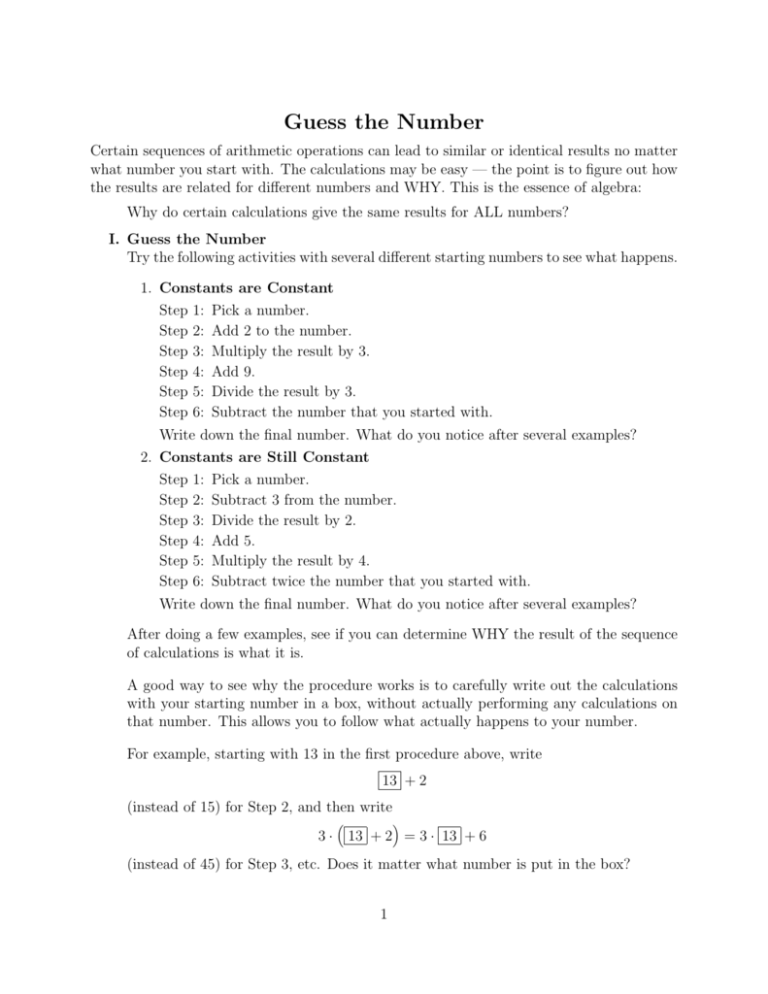
Guess the Number Certain sequences of arithmetic operations can lead to similar or identical results no matter what number you start with. The calculations may be easy — the point is to figure out how the results are related for different numbers and WHY. This is the essence of algebra: Why do certain calculations give the same results for ALL numbers? I. Guess the Number Try the following activities with several different starting numbers to see what happens. 1. Constants are Constant Step Step Step Step Step Step 1: 2: 3: 4: 5: 6: Pick a number. Add 2 to the number. Multiply the result by 3. Add 9. Divide the result by 3. Subtract the number that you started with. Write down the final number. What do you notice after several examples? 2. Constants are Still Constant Step Step Step Step Step Step 1: 2: 3: 4: 5: 6: Pick a number. Subtract 3 from the number. Divide the result by 2. Add 5. Multiply the result by 4. Subtract twice the number that you started with. Write down the final number. What do you notice after several examples? After doing a few examples, see if you can determine WHY the result of the sequence of calculations is what it is. A good way to see why the procedure works is to carefully write out the calculations with your starting number in a box, without actually performing any calculations on that number. This allows you to follow what actually happens to your number. For example, starting with 13 in the first procedure above, write 13 + 2 (instead of 15) for Step 2, and then write 3· 13 + 2 = 3 · 13 + 6 (instead of 45) for Step 3, etc. Does it matter what number is put in the box? 1
